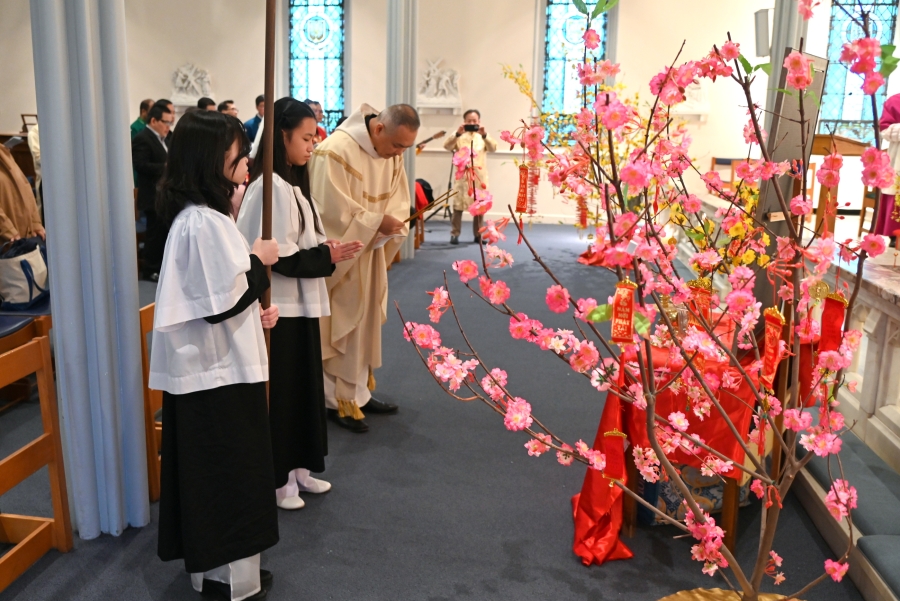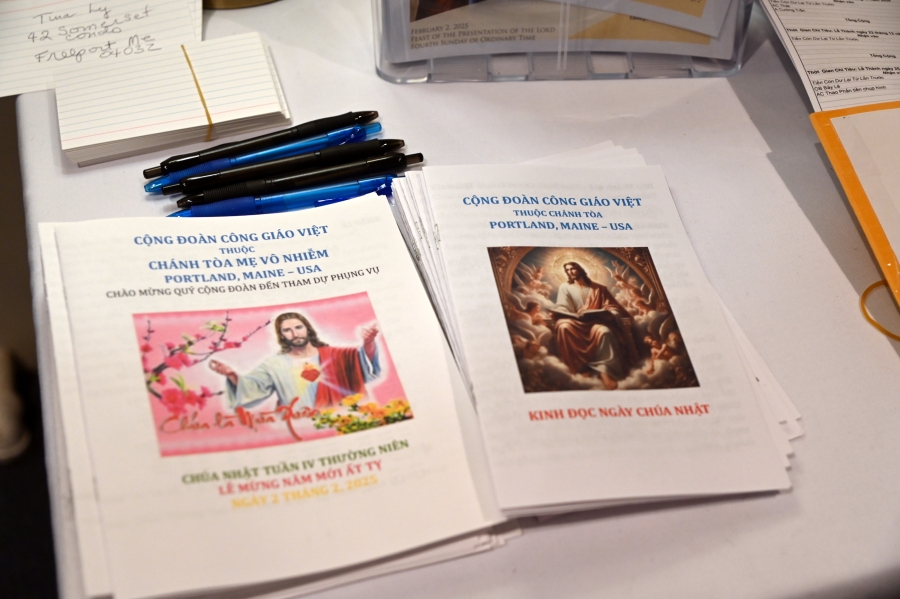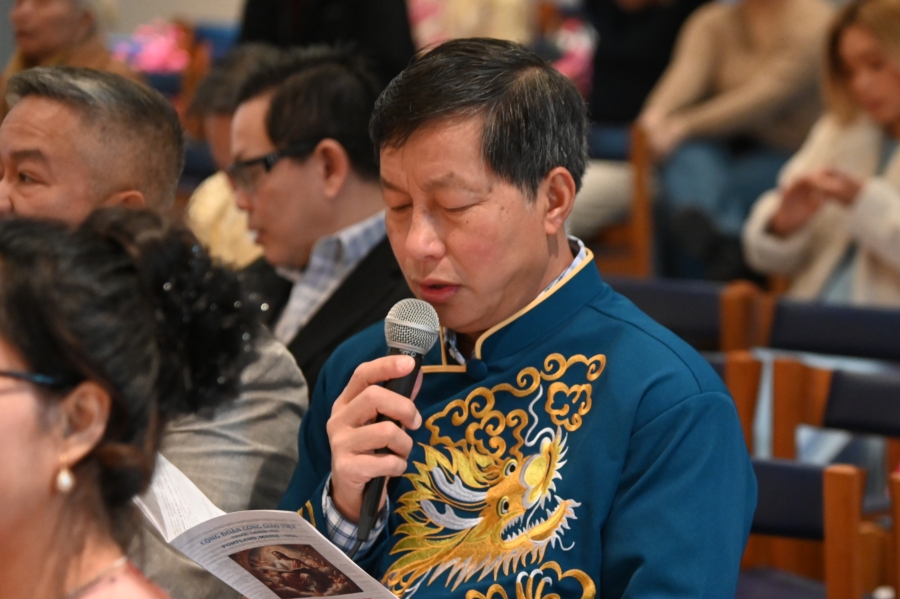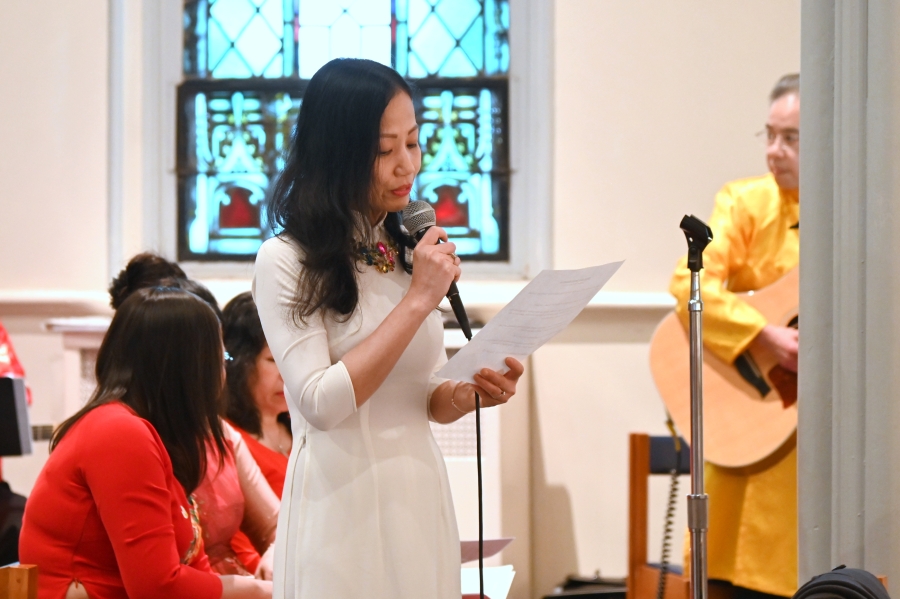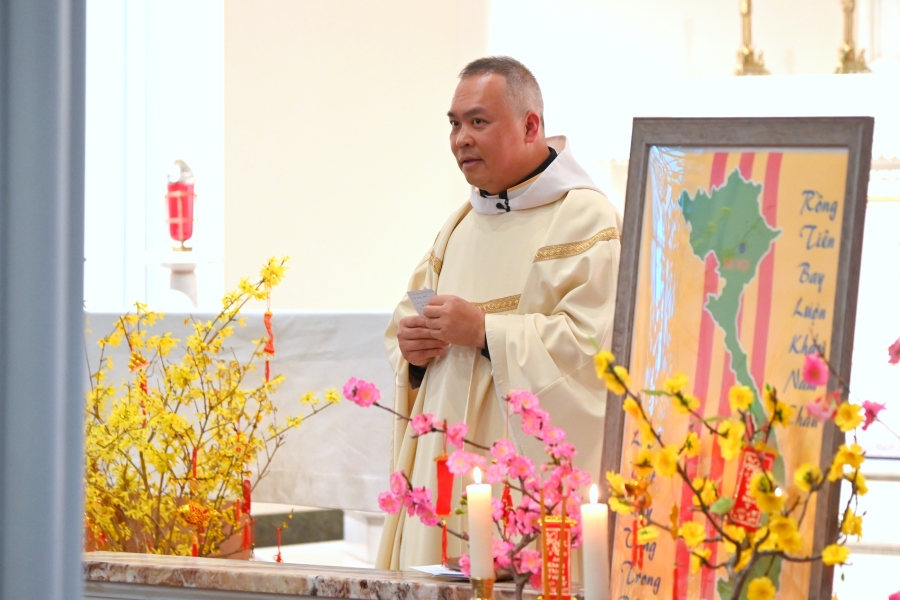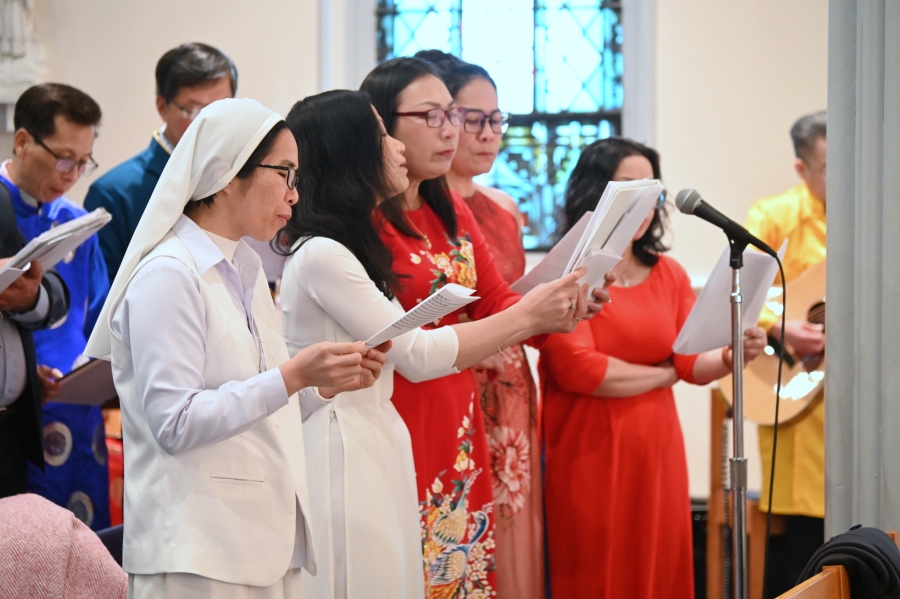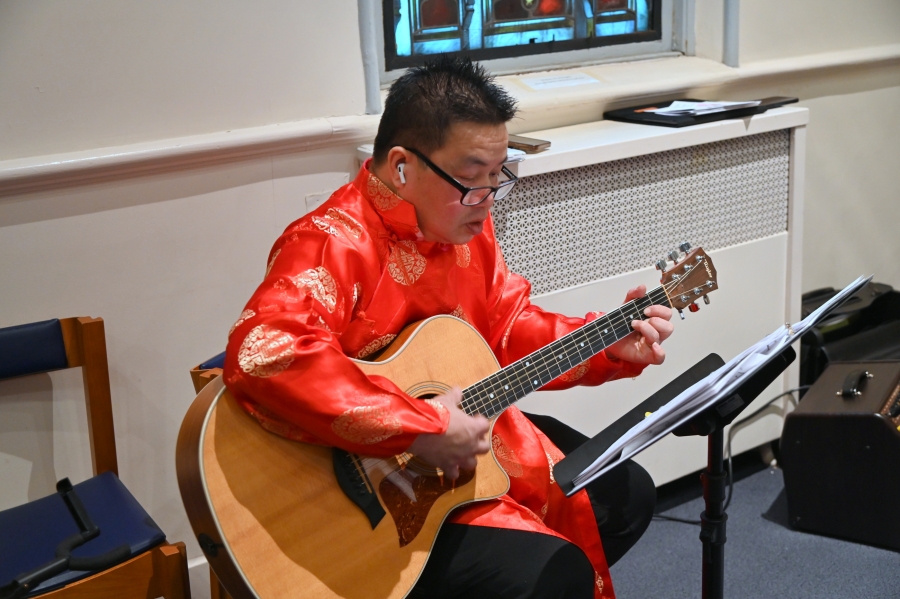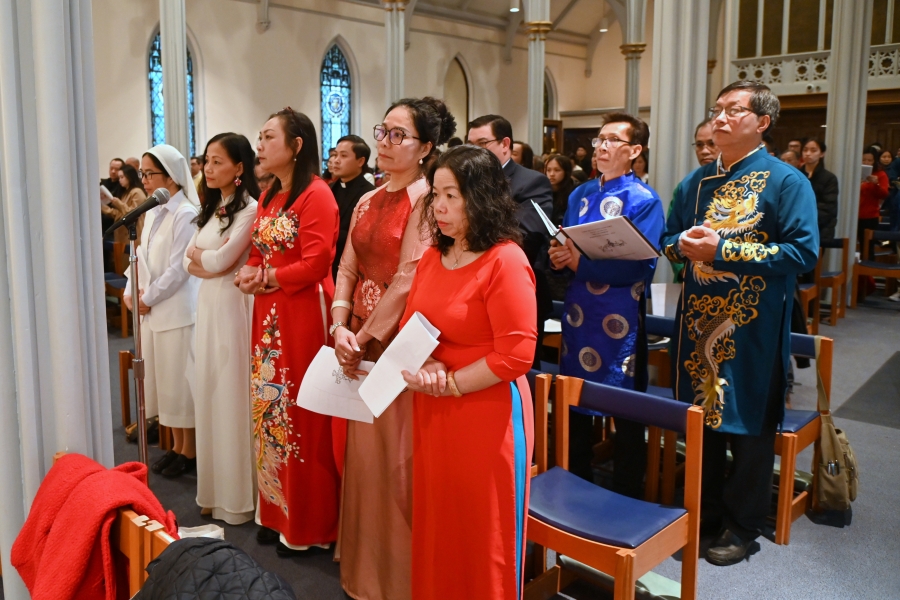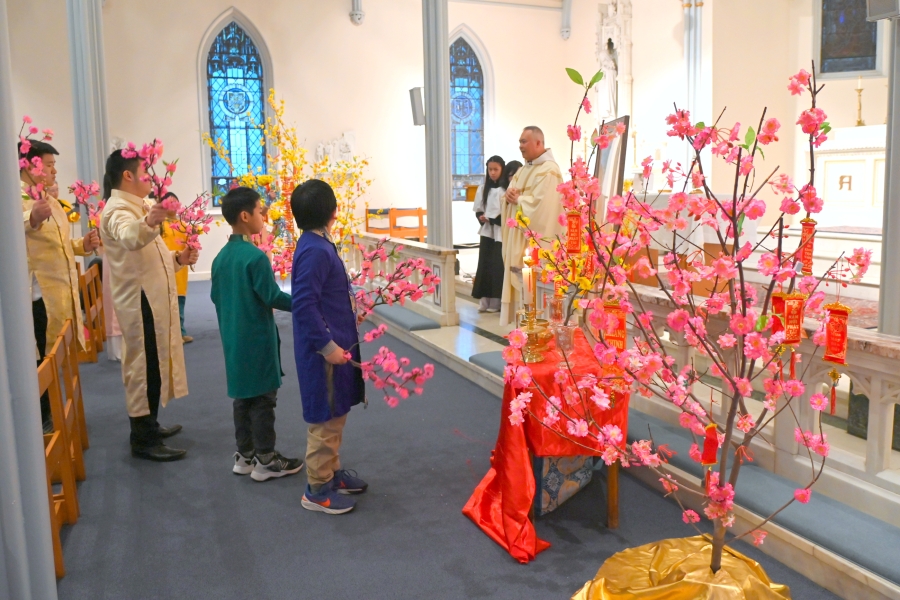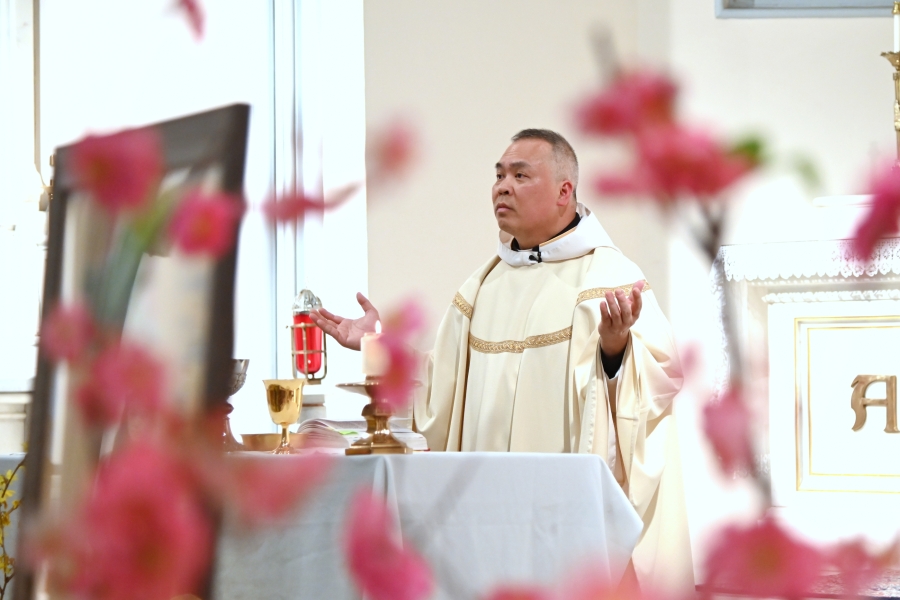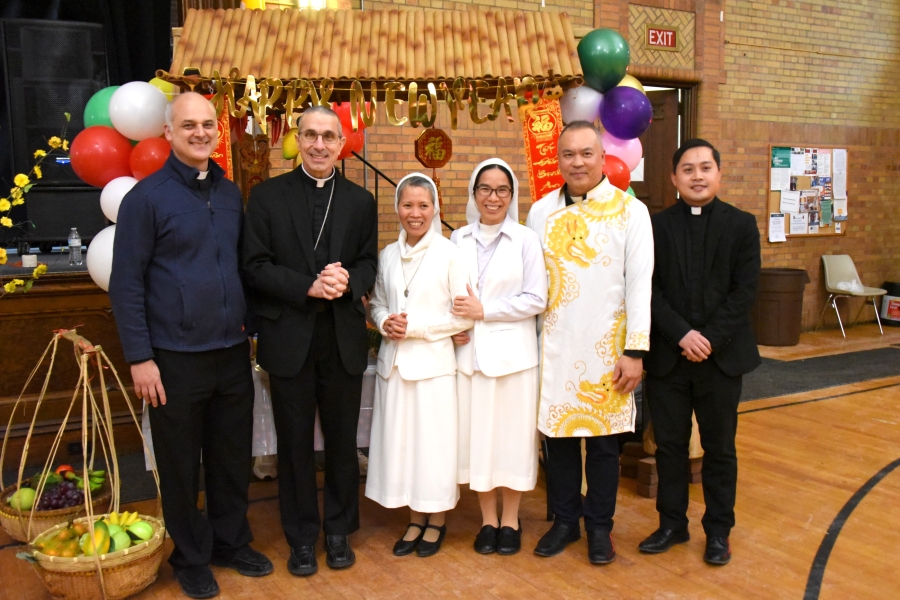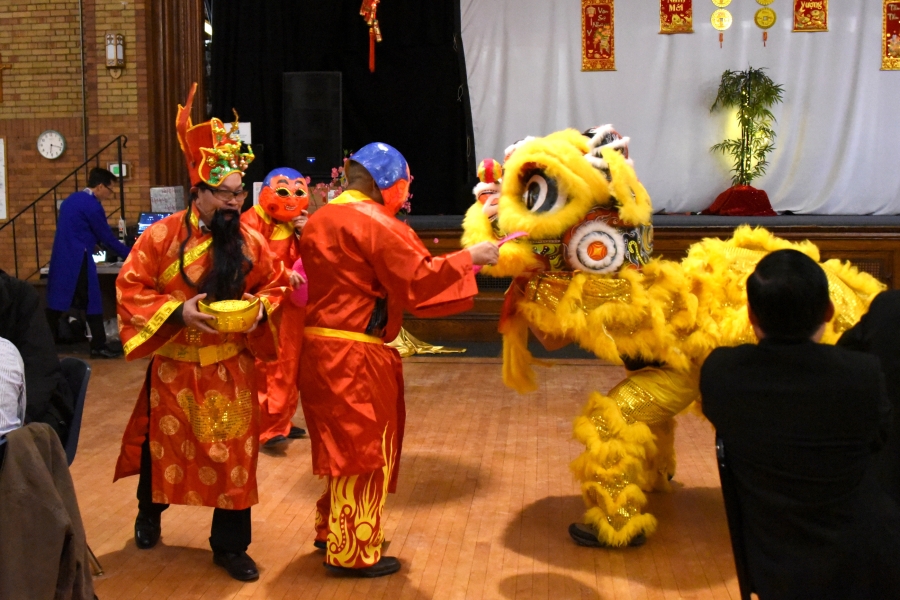Catholic Vietnamese community celebrates the Lunar New Year
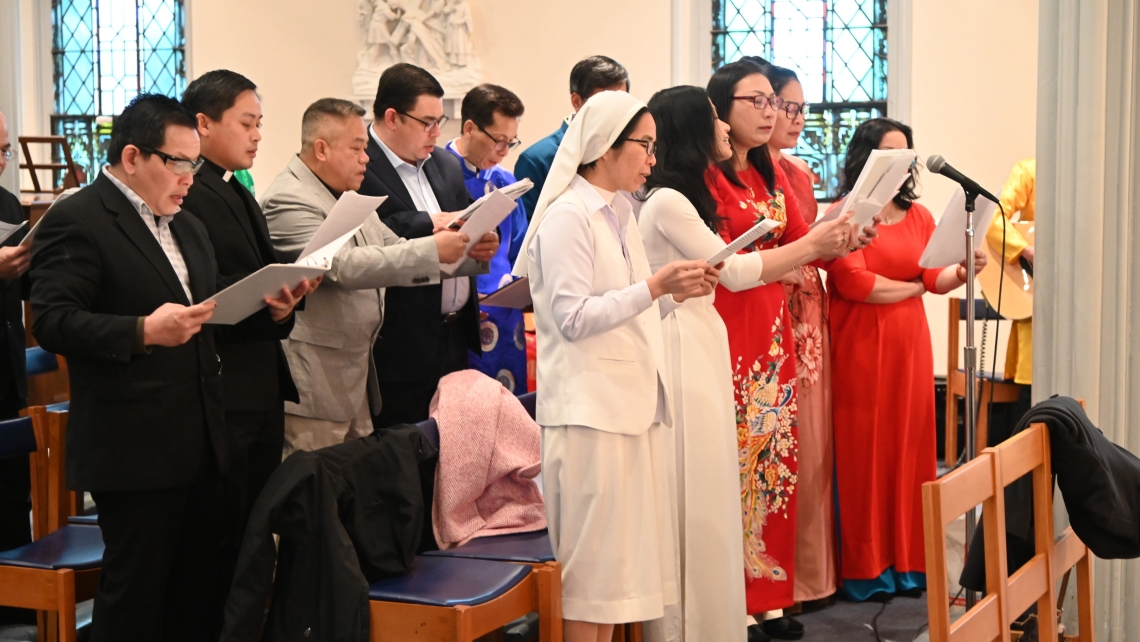
The most festive time of year for the Vietnamese people is the celebration of Tết Nguyên Đán, the Lunar New Year, and that was evident this February at the Cathedral of the Immaculate Conception in Portland.
“We don’t celebrate the January 1st New Year. We celebrate the Lunar New Year,” says Thi Ly of Freeport. “This day is very, very important for the Asian communities because this is the chance for them to get together and celebrate.”
“The New Year brings each of us one more age. Therefore, it can be called a birthday for all because, according to custom, the Vietnamese don’t celebrate their own birthday,” explains Father Dinh Votran, A.A., who celebrated the New Year’s Mass at the cathedral. “It is a family celebration.”
Known as Tết for short, the Lunar New Year is tied to the lunisolar calendar and typically occurs in late January or early February. This year, it was January 29.
The celebration lasts for days, with preparations, such as cleaning and cooking, beginning a week beforehand and festivities continuing for days afterwards. The first three days, however, are the most significant.
“The first day, we pray for the peace of the year. The second day, we pray for our ancestors who passed away, and then the third day, we pray for work,” says Vinh Nguyen, a seminarian.
While Tết is a time for families to gather, Father Dinh emphasizes that the first day is set aside to be with God, something he says Vietnam’s Catholic population, which is in the minority, shares with those who are Buddhists.
“God is the one who [we] must visit. Therefore, people go to churches for Mass or temple for worshiping,” says Father Dinh. “We do the worship and ask God to grant us a good year. A symbol for the Catholic is to receive the word of God. The Church prepares a lot of ‘red envelopes’ with the word of God in it for people to take home. Each envelope has a different quote from Scriptures as a ‘fortune’ for people to live [by] throughout the year.”
The desire to begin the new year by honoring God brought nearly 175 people to the cathedral chapel for a Mass on February 2, some traveling more than one hour to be there. Thanks to Father Dinh, who is an Assumptionist priest from the Diocese of Worcester, Massachusetts, the Mass was celebrated in Vietnamese, with the Gospel and homily shared in both Vietnamese and English.
Peach blossoms adorned the chapel for the Mass, and at the foot of the sanctuary, a small table known as an “ancestor altar” was set up.
“According to Vietnamese custom, we always invite our ancestors to celebrate the new year with us. Every important event of life, the ancestor altar is always prepared,” says Father Dinh.
In his homily, Father Dinh reflected on the importance of remembering our heritage, especially as Christians. With the celebration coinciding with the Feast of the Presentation of the Lord, he noted that Mary and Joseph followed the custom of their ancestors in bringing their firstborn son, Jesus, to the temple to present Him to the Lord.
“As a Christian, we always remember our roots,” Father Dinh told the congregation. “I invite you to be rooted in our tradition of faith and of our fellowship. Recognize Jesus as our Savior, our salvation, and try your very best to connect with people so that when they see us, they no longer see us; they see God.”
Bishop James Ruggieri and Father Seamus Griesbach, rector of the cathedral, joined the community for the celebration, the bishop wishing the faithful “Chúc mừng năm mới!” Happy New Year.
“As Christ makes all things new, may this new year bring you stronger families, deeper faith, and renewed joy in the Lord. I ask God to bless you abundantly in this Year of the Snake. And may Our Lady of La Vang intercede for you and the Holy Spirit guide you in all you do,” the bishop said.
Following the Mass, there was a celebration in the cathedral’s Guild Hall, which included a variety of ethnic dishes, Vietnamese karaoke, a dragon dance, and the handing out of red envelopes containing small amounts of money, a tradition that conveys a wish for happiness and prosperity.







